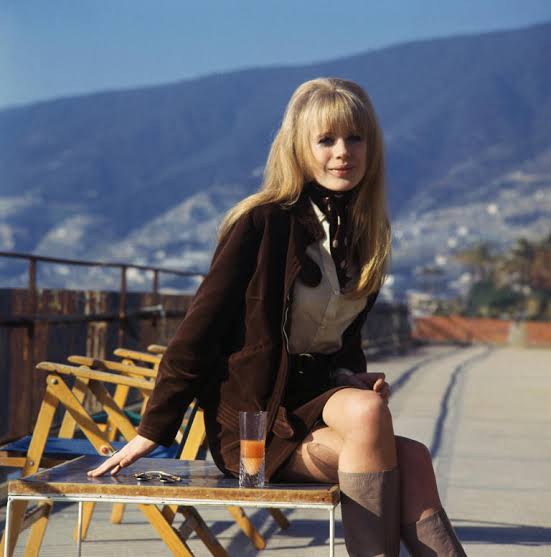Marianne Faithfull: A Timeless Icon of the 1960s and Beyond
Marianne Faithfull, an iconic figure of the 1960s, continues to stand as a symbol of the era’s blend of rebellion, vulnerability, and creativity. Born in 1946 in London, Faithfull quickly became an emblem of the counterculture, famed for her distinct voice, strikingly unique beauty, and tumultuous yet fascinating relationship with Mick Jagger of The Rolling Stones. Her journey from a rising star to an enduring artist represents much of the transformative spirit of the 1960s, and she remains a deeply influential figure in music and pop culture to this day.
Early Years and Musical Breakthrough
Faithfull’s entry into the music scene came at the tender age of 17, when she was discovered by Rolling Stones’ manager Andrew Loog Oldham. Her debut single, “As Tears Go By,” written by Jagger, Keith Richards, and Rolling Stones’ manager Oldham, became an instant hit in 1964. The song’s melancholic tone and Faithfull’s fragile, almost ethereal voice resonated deeply with audiences. Despite her initial success, Faithfull’s career was soon overshadowed by her high-profile relationship with Mick Jagger.
The 1960s: Love, Turmoil, and Transformation
Faithfull’s relationship with Jagger during the 1960s is often regarded as a defining aspect of both their careers. Amidst the growing fame of The Rolling Stones, Faithfull became an iconic figure of the swinging London scene, marked by the era’s experimentation with both music and lifestyle. Her delicate and fragile persona was in stark contrast to the wild energy of rock ‘n’ roll, yet it was this contrast that made her so compelling.
However, her relationship with Jagger was also tumultuous, marked by infidelity, public scrutiny, and personal struggles. By the end of the decade, Faithfull’s personal life, which had been caught in the storm of fame and excess, led to a significant period of crisis. Substance abuse and a loss of direction in her career resulted in her being pushed to the margins of public attention.
Reinvention and Resilience in the 1970s and Beyond
Though the 1970s were challenging for Faithfull, they marked the beginning of her artistic reinvention. After a period of personal and professional decline, Faithfull emerged stronger, producing a raw, deeply emotional album in 1979 titled Broken English. The album, which explored themes of heartbreak, personal destruction, and redemption, became a critical success and established her as a powerful force in music once again. Her gravelly, weathered voice, which had evolved with age and experience, perfectly matched the album’s bold and intense themes.
Faithfull’s career continued to evolve in the years that followed, cementing her status as an artist of depth and authenticity. She defied the typical narrative of a pop star, choosing to embrace vulnerability and exploration rather than conform to commercial expectations. Through albums like Strange Weather (1987), Blazing Away (1989), and Give My Love to London (2014), Faithfull proved that she was not just a product of her time, but an artist whose voice and vision could resonate across generations.
A Cultural Legacy
Marianne Faithfull’s influence extends far beyond the confines of her music. She became an icon for those who valued authenticity over perfection, for those who saw beauty in imperfection, and for those who understood the power of vulnerability. Her work has transcended genres, from pop to rock to folk, and she remains a vital figure in the artistic world.
Her life story, full of love, loss, struggle, and survival, continues to inspire many, both within the music industry and beyond. Today, Faithfull is regarded not only as one of the key figures in the 1960s musical revolution but also as a testament to resilience and artistic integrity. She remains an enduring figure, a timeless icon whose influence is still felt in the music and culture of today.
Conclusion
Marianne Faithfull’s life and career have never been about fitting into a specific mold. She was never merely a product of the swinging ’60s but instead a resilient and evolving artist who adapted and thrived through changing times. From the sweet, fragile voice of her early hits to the raw, gravelly tones of her later work, Faithfull’s evolution mirrors the turbulent yet transformative journey of the 1960s and beyond. As a singer, songwriter, and icon, she has carved a legacy that continues to resonate, ensuring that she remains a timeless figure in the annals of music history.

